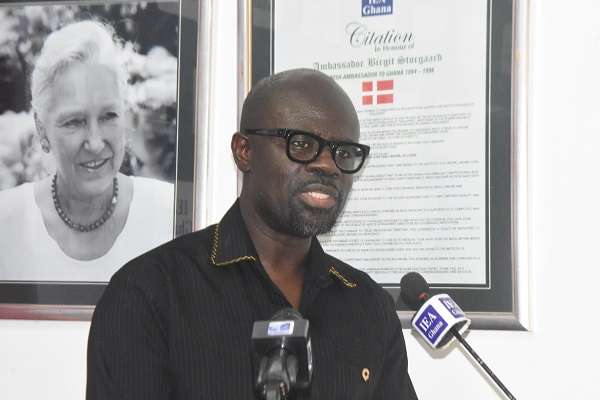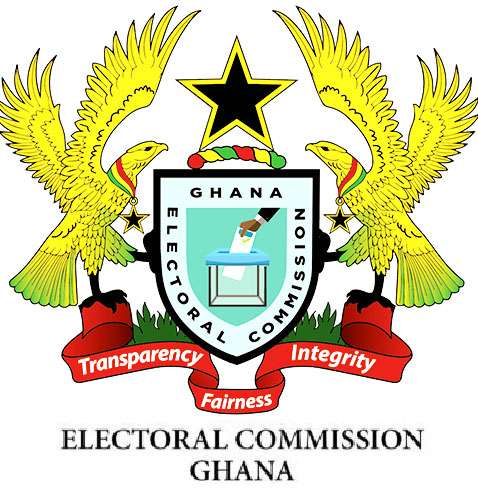The appointment process of the Electoral Commission (EC) in Ghana is a crucial aspect of ensuring the credibility and integrity of the electoral process.
The appointment process must be transparent, inclusive, and merit-based to address the mistrust in the EC and its work.
Furthermore, the process should be transparent, with clear criteria and timelines. This will prevent allegations of secrecy and bias.
As such, an independent panel comprising representatives from civil society, political parties, and other stakeholders should oversee the process.
The process should also allow for public input and nominations, ensuring a diverse pool of candidates, and giving Ghanaians a sense of ownership in the appointment process.
More so, the selection of commissioners should be based on merit, competence, and impartiality. This will ensure that only qualified and neutral individuals are appointed to manage the electoral process.
Accordingly, Professor Ernest Kofi Abotsi, Dean of the Law School at UPSA, has urged swift action to address the growing mistrust in the Electoral Commission and its operations.
He proposed that the selection process for the Commission’s chairs and members be made more inclusive and transparent, incorporating diverse perspectives to reflect the people’s preferences
Professor Abotsi noted that the Electoral Commission is constitutionally established to oversee and implement Ghana’s electoral processes, with a clear mandate to supervise and administer elections.
Professor Abotsi explained that Article 45 assigns the EC exclusive responsibility for elections in Ghana, elevating it as the sole authority on electoral matters and ensuring its independence from political influence.
However, Professor Abotsi observed that the Electoral Commission’s work has been consistently disputed and challenged, particularly by the two major political parties, the NDC and the NPP
“Ironically to either party, the EC is only good when the party is in power in which case they see nothing wrong with its activities or moves. To the other party in opposition, the EC is to be looked on with troubling suspicions and its decisions grilled with skepticism.”
“Recent controversies surrounding the use of the Ghana Card in voting, voter registrations, and re-registrations, etc reflect that trust deficit and the challenge unfolding needs to be cured”.
Professor Ernest Kofi Abotsi
Handpicked EC Commissioners Fuel Mistrust
Professor Ernest Kofi Abotsi attributed the widespread mistrust to the current appointment process where the President handpicks the EC Commissioner and members, fostering skepticism and suspicion while he expresses concern over it.

He pointed out that the existing arrangement, where the President appoints the Commissioner, is problematic since the President may also be a candidate in the next election, creating a conflict of interest.
Professor Abotsi cautioned that if this trend continues, it may result in a revolving door of electoral commissioners, with each new government appointing its own, potentially undermining the commission’s independence
“It is disturbing because even if this situation is deemed merely perceived and not actual, the fact that the parties view the trend as real implies that they are likely to witness retaliatory responses when they take turns of power, leading to a complete destruction of the functional autonomy of the EC”.
Professor Ernest Kofi Abotsi
He emphasized the urgent need to enhance trust and confidence in the EC Commissioner’s appointment process, suggesting that widening and intensifying consultations during the appointment process could be a crucial step towards achieving this goal.
Thus to broaden consultations during the appointment process, parliamentary approval of the appointed commissioners is essential, ensuring accountability and preventing arbitrary appointments.
The EC composition should reflect Ghana’s diversity, including gender, regional, and political balance as this will ensure that the EC represents the interests of all Ghanaians.
Most importantly, mechanisms for accountability, such as regular audits and performance evaluations, should be established to ensure the EC’s credibility and integrity.
“I will suggest that in any future appointment of the Commissioner, sitting presidents should do well to actively consult opposition parties and engage in back-channeling with key stakeholders in the process”.
Professor Ernest Kofi Abotsi
Accordingly, a transparent, inclusive, and merit-based appointment process is essential to address the mistrust in the EC and ensure a credible electoral process in Ghana.
By more purposefully being inclusive with consultations during the appointment process, Ghana can strengthen its democracy and promote trust in the electoral process.
READ MORE: GSE Launches OTC Market for Unlisted Rural Banks and SMEs



















